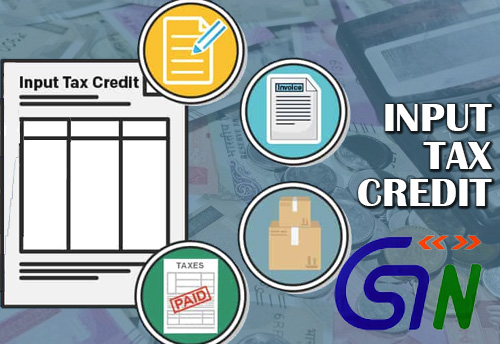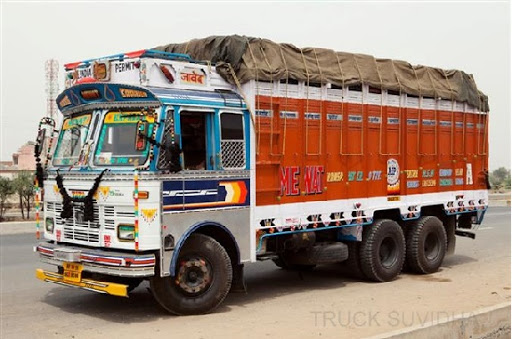One of the main pillars and objective for introduction of GST regime was to avoid the cascading effect of taxes and to ensure seamless flow of credits. However as per GST law the flow of credits is not fully seamless and is rather subject to certain restrictions and conditions as mandated under Section 16 of the CGST Act, 2017. Further time limit for availing of input tax credit has also been incorporated in GST Law, beyond which the credit will become time barred and cannot be availed.
In this article we shall deliberate about time limit of availing of input tax credit , its applicability in cases of imports and reverse charge cases.
Time limit for availing of input tax credit
The time limit for availing of input tax credit has been mandated under Section 16(4) of the CGST Act,2017. For ready reference the Section is reproduced below:
(4) A registered person shall not be entitled to take input tax credit in respect of any invoice or debit note for supply of goods or services or both after the due date of furnishing of the return under section 39 for the month of September following the end of financial year to which such invoice or invoice relating to such debit note pertains or furnishing of the relevant annual return, whichever is earlier.
Provided that the registered person shall be entitled to take input tax credit after the due date of furnishing of the return under section 39 for the month of September, 2018 till the due date of furnishing of the return under the said section for the month of March, 2019 in respect of any invoice or invoice relating to such debit note for supply of goods or services or both made during the financial year 2017-18, the details of which have been uploaded by the supplier under sub-section (1) of section 37 till the due date for furnishing the details under sub-section (1) of said section for the month of March, 2019.
In simple words, the above sub-section (4) states that input tax credit in respect to the invoice or debit note for inward supply goods or / and services can be availed till the due date for filing of GSTR-3 / GSTR 3B for the month of September for subsequent year or filing of annual return for the period to which such invoice or invoice relating to such debit note pertains to. Beyond this date credit cannot be availed.
Illustration 1:
X Limited missed to avail tax credit in respect of an invoice dated 25.01.2020. Can he avail its credit now?
In this case the invoice pertains to financial year 2019-20 and thus as per Section 16(4) , the credit can be availed till earliest of following two dates:
i) Due date of filing of GSTR-3B for September, 2020 viz 20th / 22nd / 24th October, 2020 (as the case may be).
ii) Filing of annual annual return for FY 2019-20 : There seems to be no possibility for filing of annual return for FY 2019-20 , as 31st December,2020 is the extended due date for filing of annual return for FY 2018-19.
Thus earliest of two dates, being the due date of filing of GSTR-3B, which have already expired as of today, the input tax credit of above invoice cannot be availed in November,2020.
Illustration 2:
X Limited had purchased some goods from Y Ltd vide invoice dated 25.01.2020. Subsequently on 01.11.2020 Y Ltd has issued a debit note in respect of such invoice, as inadvertently the value of supply was undercharged in the invoice. Can he avail its credit of tax charged in the debit note.
In this case it is important to note that the Section specifically states that the key date to determine time limit will be date of invoice , even in cases of debit note and as the invoice pertains to financial year 2019-20, the time limits as determined in Illustration 1 will also apply in this case and thus input tax credit cannot be availed in respect of tax charged in the debit note by Y Ltd.
Amendment in regard to time limit for availing ITC of debit notes
While going through Illustration 2 , supra we would appreciate that input tax credit cannot be availed in this case despite no fault of the recipient as he received the debit note after the time limit under Section 16(4). In order to address this genuine hardship Section 16(4) was amended and the words” invoice relating to such” was omitted by Finance Act, 2020 with effect from a date yet to be notified.
However till date of publication of this article above amendment has not yet been enforced and thus the hardship continues.
For further details in this regard CLICK HERE
Date of invoice vis-a-vis date of supply to be taken for computing time limit
In many cases specially in cases of services there is a time lag between date of supply and date of issuance of invoice as Rule 47 of the CGST Rules prescribes the time limit of 30 days (45 days of Banks, FI, NBFCs and Insurance Companies) for issuing the invoice for supply of services.
In such cases whether while arriving time limit should we take date of supply or date of invoice. Lets understand this with help of an Illustration:
Illustration 3:
Date of provision of service – 20/03/2020
Date of issue of invoice – 15/04/2021
In this case, two options for arriving at time limit u/s 16(4) emerges as under:
i) Time limit is to be taken from the financial year in which the supply was made : As supply was made in FY 2019-20 and thus ITC can be availed till due date of filing GSTR-3B of September,2020
ii) Time limit is to be taken from the financial year in which invoice is issued i.e. FY 2020-21 and thus ITC can be availed till due date of GSTR-3B of September,2021.
The language used by Section 16(4) uses the words “pertains” thus in opinion of author it should be that date of issue of invoice and thus in above Illustration the time limit should be filing of GSTR-3B for September,2021.
Is GSTR-3B a tax return under Section 39
As stated supra the time limit for availing of input tax credit under Section 16(4) hinges upon the due date of furnishing of the return under section 39. Now the question arises whether GSTR-3B is a return under Section 39, in view of fact that GSTR-3 is the return under said Section, which is not yet made applicable due to technical glitches and GSTR 3B has been introduced for time being in leu of GSTR 3 under Rule 61(5) of the CGST Rules,2017.
It is important to note here that in case of “AAP & Company, Chartered Accountants v/s Union of India”, the Gujarat HC had held that Form GSTR-3B is not a valid return under section 39 of CGST Act, 2017. However, the department has filed an appeal against the above referred decision in Supreme Court vide Union of India & Others Vs AAP And Co, in (2019-TIOL-543-SC-GST) which is pending as on date.
In order to get over the above judgment the Central Govt vide Notification No. 49/2019 CT dated 09/10/2019 substituted Rule 61(5) retrospectively from 01.07.2017, wherein it categorized Form GSTR 3B as a return under section 39 of CGST Act and also prescribed that where FORM GSTR-3B is required to be furnished by a person then such person shall not be required to furnish the return in FORM GSTR-3.
Considering above it is suggested that we should compute time limit of availing ITC taking the due date of filing of GSTR-3B return and we should strive that all eligible credits are availed by such date in order to avoid any ITC loss.
Will time limit apply in case of import of goods
In case of import of goods, IGST will be discharged by the importer by filing the bill of entry which would be the document to claim ITC of IGST paid on imports as per Rule 36 of CGST Rules 2017.
In terms of section 2(66) of CGST Act, ‘tax invoice’ means invoice referred in section 31 of CGST Act. This section mandates issuance of tax invoice (for taxable supplies) or a bill of supply (for exempt supplies) for every supply of goods or/and service having details of description, quantity, value of supply, tax charged there on and such other particulars as may be prescribed.
It is important to note here that Section 2(66) does not specifically cover the Bill of entry for imports and thus we can conclude that Bill of Entry is not covered under the expression ‘invoice’.
As Section 16(4) lays down time limit of availing of ITC is respect of invoices / debit notes which as discussed above does not cover Bill of entry. Accordingly in view of the author the restriction of time limit should not be applicable in case of Bill of Entry.
How time limit will be computed in reverse charge cases
In terms of Section 2(98) of CGST Act, ‘reverse charge’ means recipient is liable to pay GST on inward supply of goods or/and services as notified by government under section 9(3) or supply from unregistered person under section 9(4) of CGST Act.
Section 31(3)(f) of the CGST Act,2017 prescribes that “a registered person who is liable to pay tax under sub-section (3) or sub-section (4) of section 9 shall issue an invoice in respect of goods or services or both received by him from the supplier who is not registered on the date of receipt of goods or services or both.”
From above provisions it is evident that tax payers are eligible to avail ITC of GST paid under RCM provided a self invoice as prescribed under Section 31(3)(f) of the CGST Act,2017 has been issued on the date of receipt of goods or services or both. Further as per Rule 36(1)(b) of the CGST Rules , ITC of reverse charge can be availed if self invoice has been raised and payment of tax has been made.
However it is important to note that such self invoice is required to be issued only where supplies subject to RCM are obtained from unregistered suppliers. In case RCM supplies are received from registered person, ITC can be availed on the basis of invoice issued by registered supplier and payment of tax under RCM.
In view of author, while determining time limit is such cases the date of receipt of goods or services or both should be considered as this the date up to which invoice should be issued.
Illustration 4:
X Ltd availed legal services of an advocate in January,2019 and paid advocate fee Rs. 1 lakh in the month of February,2019. These legal expenses were accounted for in the books of account of FY 2018-19. But due to oversight RCM liability of Rs.18000 was not accounted for in FY 2018-19. GST payment under RCM was also not made in FY 2018-19.
Suppose X Ltd now in November,2020, while filing GSTR-3B for October,2020 has deposited the GST under RCM of Rs 18,000/- on above legal expenses along with interest. Self invoice was also issued in October,2020. Now question before us is whether ITC of above GST paid can be availed now in FY 2020-21.
As in this case the supplier is unregistered , twin conditions must be fulfilled to avail input tax credit towards tax paid for discharging the reverse charge liability. First condition being that invoice be issued in accordance with provisions of section 31(3)(f) and second one being that tax has been paid.
As self invoice has not been issued on date of receipt of legal service viz January,2019 and is issued in October,2020 , in our view the condition prescribed in Rule 36(1)(b) of the CGST Rules, 2017 is not met and thus ITC cannot be availed.
For further discussion CLICK HERE
***
[rainbow]Don’t miss the next GST Update / Article / Judicial pronouncement[/rainbow]
Subscribe to our newsletter for FREE to stay updated on GST Law
Resolve your GST queries from national level experts on GST free of cost.
Frah Saeed is a law graduate specializing in the core field of indirect taxes and is the Co-founder of taxwallah.com. She has authored many publications on GST and is into full-time consultancy on GST to big corporates. She as a part of taxwallah.com heads a team comprising of Chartered Accountants and Advocates and plays a key role in our mission to disseminate GST knowledge to all.




